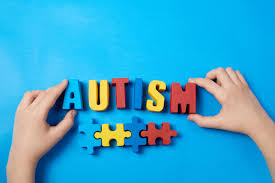
Autism Among Top 10 Health Issues for Youth, Affecting 62 Million Globally: Lancet Study
Autism spectrum disorder (ASD) has emerged as one of the top ten non-fatal health burdens among children and adolescents under 20, according to a recent study published in The Lancet Psychiatry. The study revealed that nearly 62 million people worldwide were living with autism in 2021.
The research, led by Damian Santomauro from the University of Washington’s Institute for Health Metrics and Evaluation, estimated that one in 127 individuals globally were autistic in 2021. “Addressing not only the needs of autistic children and adolescents, but also those of adults, who often remain under-represented in research and service provision, is imperative,” the researchers emphasized.
Rising Rates of Autism: Better Detection or Growing Prevalence?
The study, which synthesized data from 105 studies across 33 countries, highlighted a significant increase in autism prevalence—from one in 271 people in 2019 to one in 127 in 2021. This rise is largely attributed to advancements in detection methods and more comprehensive case reviews of clinical and educational records, as opposed to clinical evaluations.
While the findings suggest a higher prevalence than current estimates from the U.S. Centers for Disease Control and Prevention (CDC), which puts the rate at one in 36 children, researchers caution that differences in methodologies may contribute to this disparity.
Gender Disparities and Age Trends
The study also noted significant gender differences in autism prevalence. Autism rates among males were more than double those of females—1,065 cases per 100,000 males compared with 508 per 100,000 females. However, this is lower than CDC estimates, which suggest boys are nearly four times more likely to be diagnosed with autism than girls.
Additionally, the prevalence of autism declines with age, underscoring the importance of early detection and intervention.
The Urgent Need for Early Diagnosis and Lifespan Support
Experts emphasize that early diagnosis of autism is crucial for ensuring children receive therapies that can benefit them throughout their lives. "Addressing the global health burden of autism spectrum disorder requires prioritizing resources for early detection programs, including improved diagnostic tools—particularly for adults and those in low and middle-income countries with limited access to care,” the study concluded.
Navigating the Holidays: Challenges for Kids on the Spectrum
Autistic children may find the holiday season particularly overwhelming due to sensory sensitivities, according to David Boehme, a teaching assistant in Germany. “Sounds, smells, guests in the house, and changes in routine can be overwhelming, stressful, and scary for an autistic child,” Boehme wrote in Autism Spectrum News.
Bridging Gaps in Research and Services
While the study sheds light on the rising global prevalence of autism, it also calls for more inclusive research and service provision for autistic adults, who often remain under-represented. The findings highlight a pressing need for enhanced caregiver support, tailored services, and innovative diagnostic tools to meet the evolving needs of individuals across the autism spectrum.
This study serves as a wake-up call for global health systems to prioritize autism care, particularly in low-resource settings, to ensure equitable access to early intervention and lifelong support.